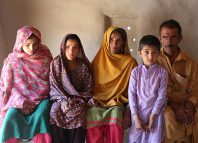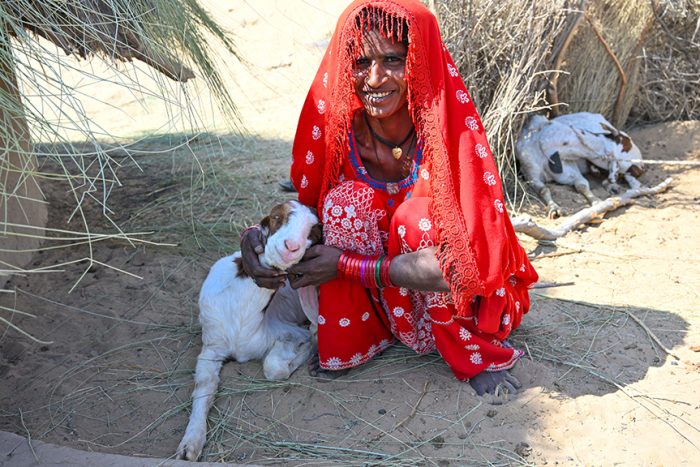A short spell without debt
The memory of the drought of 2021 was fresh in her mind even a year later. That year, as she had always hoped and prayed, Sohdi was looking forward to good rains when she sowed her three-acre spread with millets, guar and lentils. But no rain fell and her seedlings withered under the merciless sun.
The next year, she underwent agricultural training by Community World Service Asia and with it received an 8-kilogram bag of millet seeds. She sowed half of that, saving the remainder to be used in 2023. But if 2021 was the year of the drought, 2022 turned out to be the year of the floods. In July when her seedlings seemed to be coming along nicely, the rain began and for the next eight weeks it did not let up. In fact, when it did pause for a couple of hours, the sun did not show because of the thick, dark overcast. Sohdi knew it then that there would be little or nothing to harvest. No surprise then that in November she reaped a mere 40 kilograms from her entire millet patch. That was less than a quarter of the usual yield when rains come on time.
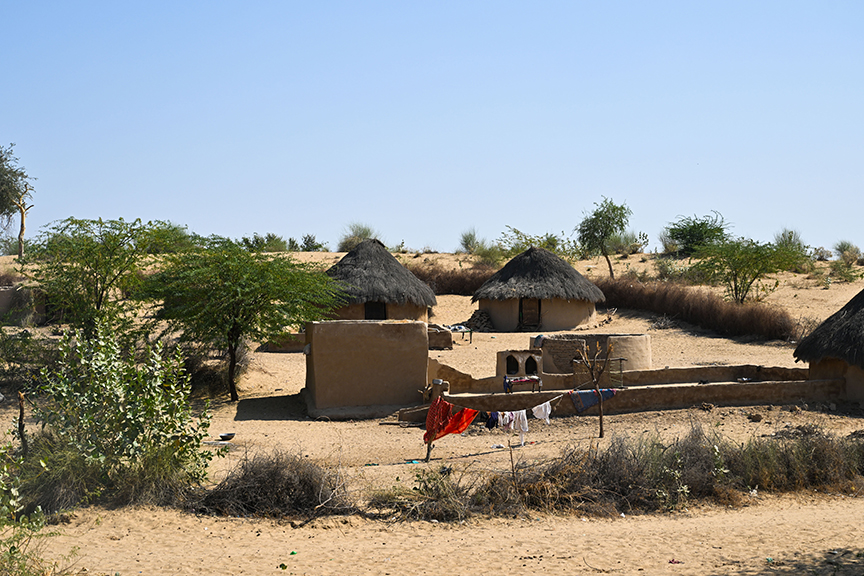
The land she had under guar, mong and sesame did only marginally better. The entire crop which with less but timely rain should have fetched upward of PKR 60,000 (Approx. USD 208) accrued her a mere PKR 20,000 (Approx. USD 69). The last instalment of food aid was behind her, but she still had rations to see her and her five sons through another month. Ever judicious, Sohdi invested PKR 6000 (Approx. USD 21) to purchase a goat. A little paid for dry rations and clothing for her boys. The remaining amount was given away as a wedding gift to a relative. Why couldn’t this unnecessary expense be avoided in these difficult times?
“This had to be done because when my sons wed, they will receive similar presents. This is our age-old way. It has to be followed,” she explained.
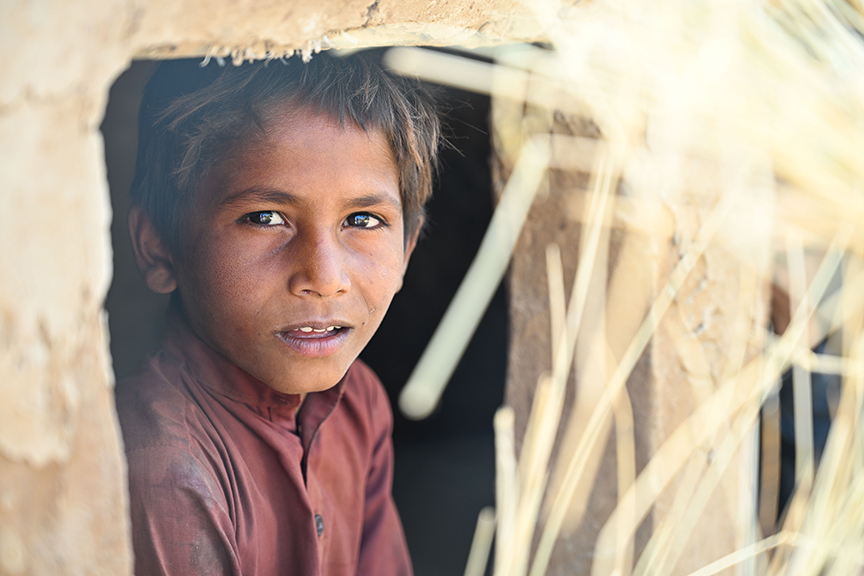
Meanwhile, over the past six months when she did not have to purchase rations, Sohdi had saved up nearly PKR 14,000 (Approx. USD 49) from her eldest son Chanesar’s earning. The boy, an unskilled construction labourer, is an expert in building thorn hedges that surround the compound of most houses in Umerkot. But one of the goats died of illness following the non-stop rain. Nevertheless, things looked reasonable for Sohdi and her boys because she was not under debt when the new year dawned.
“I and so many others like me who faced the same situation in 2021, were lucky that we had food assistance. Had that not been in place, we would all have owed the local storekeeper nothing less than PKR 60,000 each,” she said with hands held together in a gesture of thankfulness.
In early February 2023, Sohdi knew there was no more food assistance, and so she had plans. In four weeks she and Chanesar will leave for the canal-irrigated region to the west of Umerkot district. For four weeks thereafter they will help in the wheat harvest and return home with about 360 kilograms of wheat as their wages. Earlier, since the death of her husband and the boys being too young to work, Sohdi had always gone alone to the harvest. The wages for a single person had never added up to more than 120 kilograms.
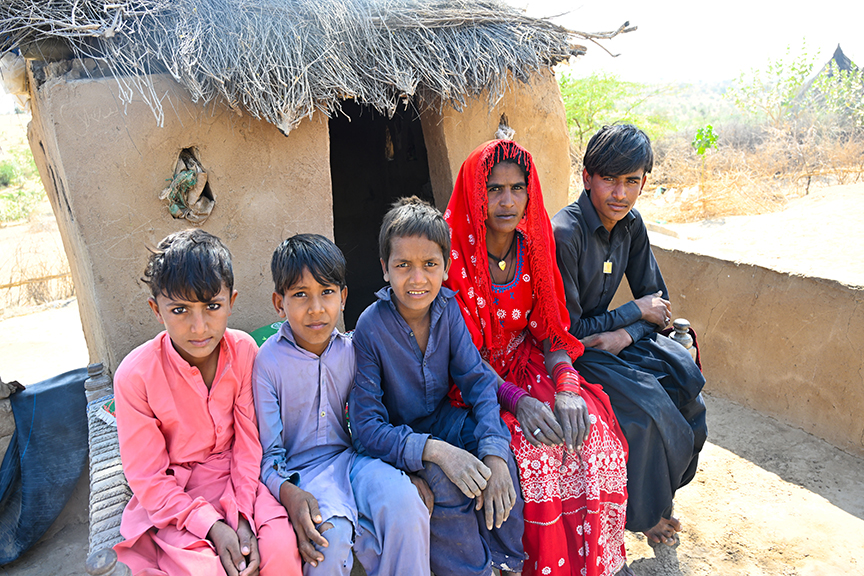
What she and her boy will earn in wheat grain will last them just two months. Then, said Sohdi, it will be time to sow the summer crops and hope that neither deluge nor drought hits them again. Meanwhile, Chanesar will be hard at work building his thorn hedges not just for his own village but he will even go to neighbouring ones wherever his expertise is needed.
“He’ll have to work hard because he is engaged to be married next winter,” Sohdi disclosed. Cutting every nonessential expense, Sohdi planned to save for the big day when Chanesar dresses as the groom.
But despite all one’s good wishes for the people of Umerkot, one could not say how nature would treat them next summer. What if, God forbid, the rains do not help?
“I am fortunate to be totally free of loan right now. If the crop is a success in November, we will have plenty of food and cash for the wedding. If not, I can always borrow as I have done in the past.”
For Sohdi and so many others like her, the loan is a cyclical burden: she goes under debt, harvests a good crop and repays. A year goes by without it and then if need be, she borrows again. For her, a widow, the other fall back is the kindness of relatives who always come forward to help her in dire situations. And so life goes on for Sohdi, her five boys and innumerable other people of Umerkot who depend on summer rains for survival.




